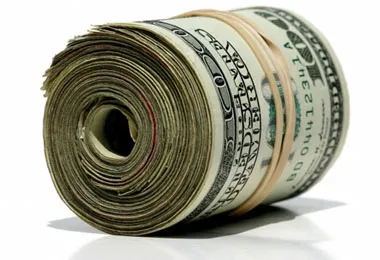
Building Credit
What you Need to Know
Building credit can be a daunting task, but there are ways to successfully build credit without multiple disappointments and without it costing you an exorbitant amount of time.
If you’ve tried to build credit in the past, then you know how hard it is to qualify for any type of credit without credit history. Banks don’t know if they can trust you with their money or not. That’s basically what a credit score is, a gauge of whether or not they can trust you. Without a credit history, especially being under the age of 21 can hurt your chances at getting a credit card. Credit cards are the most popular and most well-known ways of building credit. However, there are other ways to build credit other than a credit card.
Secured credit cards are easier to qualify for than unsecured credit cards, or regular credit cards. What makes them different is a secured credit card is backed by a cash deposit. For instance if you put $200 dollars down as the deposit, then you are allowed to charge up to $200. The deposit ensures that if you don’t pay the bill, the issuer can take it from the deposit. This is what gives the name secured credit card. You will eventually get the deposit back after you use the card responsibly for a certain period of time. This is a good alternative to a credit card because they are easier to qualify for and will build credit in the same way.
Student credit cards are also easier to qualify for than regular credit cards. If you are a student at UCCS or any other university for that matter, you have a chance at qualifying for a student credit card. They usually have lower qualifications to get approved and have higher credit limits. They are a form of unsecured credit cards and they usually have a low introductory APR. However, after the introductory APRs are over, the APR can be relatively high. If used responsibly, the high APR can be an insignificant factor of repayment. This will help you build credit through the use of a credit card.
If you have a family member that has good credit you can use that to your own advantage. You can ask that family member with good credit to add you as an authorized user on their credit card. This basically allows you to be authorized to use a credit card that is not in your name and you are not legally obligated to pay for your charges. If a family member, such as one of your parents, is willing to do this, it will help you build credit without having the full responsibility of a credit card. This is best for people without a lot of financial independence or experience.
Getting a cosigner will help you qualify for a loan or unsecured credit card. Having a cosigner means that if you don’t pay your bill, the person who cosigns will be the ones responsible to pay for you. Banks ultimately care about getting their lent money back in return, so having a cosigner will help you greatly. You are more likely to qualify for forms of credit if you have a cosigner.
One of the more simple, less obvious ways to build credit is asking for credit where it’s due. Just because you don’t have a credit history, it does not mean you don’t know anything about paying bills. Most of the time, your rent payments or utility bills don’t show up on your credit reports unless you have not paid on time and the leasing company sends you to a collection agency. However, if you have been diligent and paid your bills on time, you can ask your landlord to report you to the credit bureaus. Recently, Experian was the first to include positive rental payment information in their credit reports. This can help you build credit by continuing to do what you already do, pay bills on time.
Secured loans are similar to secured credit cards. You pledge a certain amount of money or other assets as collateral for the loan. This means that if you don’t pay your bill, they will take from that collateral as a form of payment. This reassures the issuer that they will in fact, see a return on their money. These loans are easier to qualify for and help you build credit in the same way as an unsecured loan.
Building credit takes time and patience, but getting started is the first step. There is always more than one way to build credit and finding what works best for you is key to making payments on time. It is crucial to remember that whatever form of credit you choose to take out, that there will be added interest as well. Do your homework and make sure that you fully understand the form of credit you are taking out. Also, make sure that the amount you take out or the amount spent you are capable of paying back fully. If you are responsible, you’ll be successfully on your way to building credit.
Disclaimer: The information contained is intended for general informative purposes. It is not a substitute for advice from an appropriate, licensed professional. Opinions stated are my own, unless otherwise stated. I do not assume liability for financial decisions based on this material.
Reference
https://www.creditkarma.com/advice/i/how-to-build-credit-from-scratch/
https://www.experian.com/blogs/ask-experian/credit-education/improving-credit/building-credit/
https://www.nerdwallet.com/blog/finance/how-to-build-credit/
http://www.greenpath.com/resources-tools/financial-library/loan-types/secured-vs-unsecured-loans
https://www.nerdwallet.com/blog/credit-cards/secured-credit-cards-vs-unsecured-difference/
Additional Resources
Have a Question?
Contact Us: money@uccs.edu